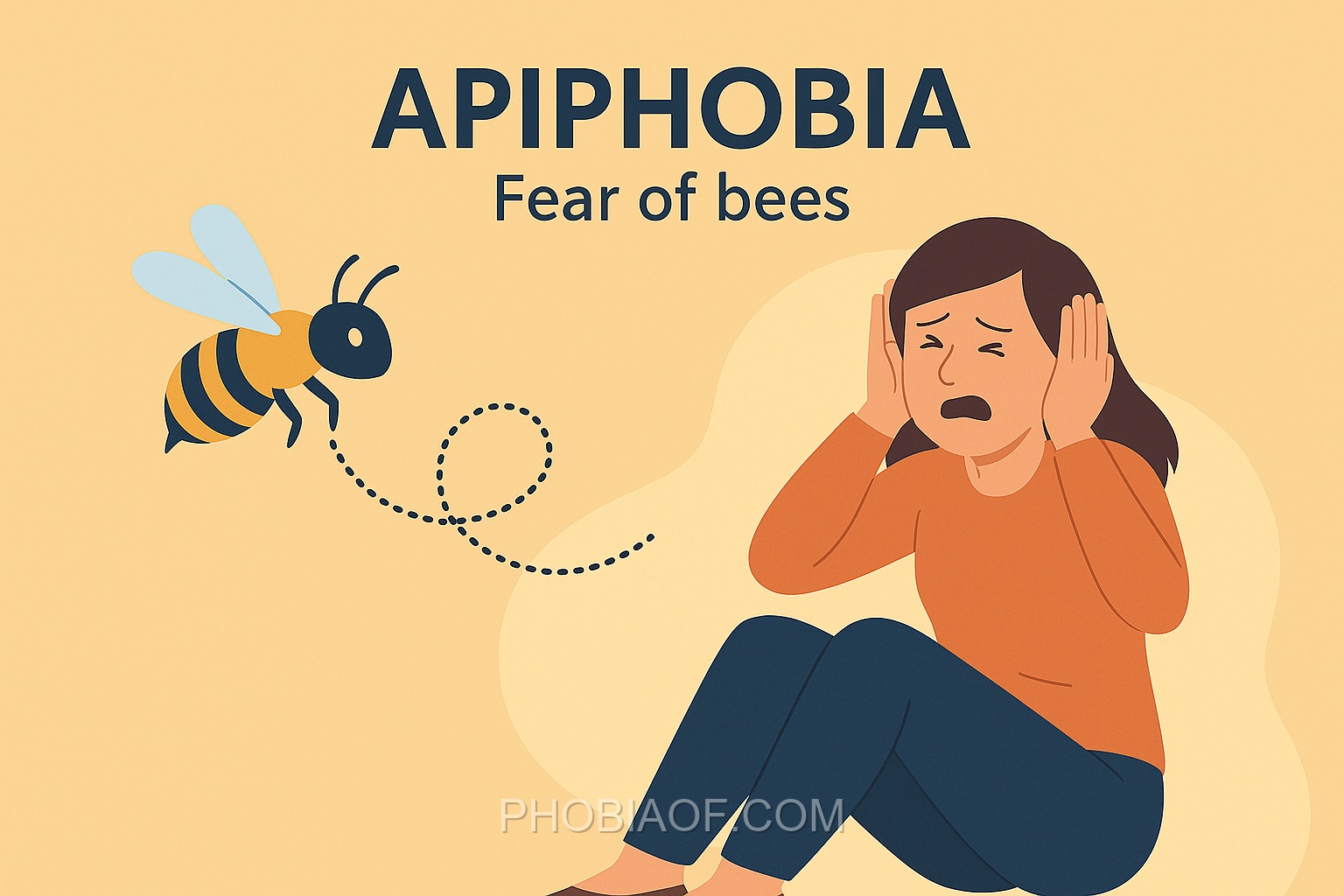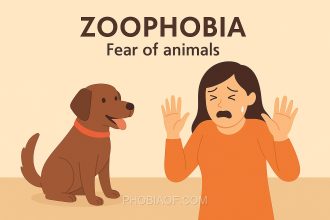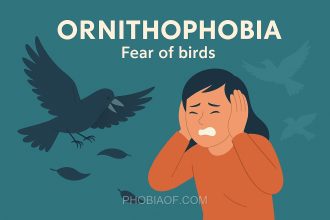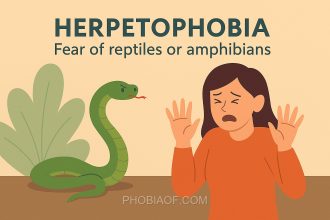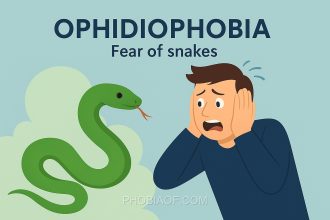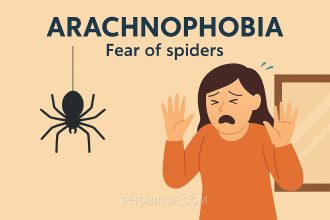Have you ever found yourself frozen in place at the sound of a buzzing bee? If so, you’re not alone. This intense fear is known as Apiphobia, a term derived from the Greek words “apis,” meaning bee, and “phobia,” meaning fear.
Apiphobia is more than just a simple dislike of bees—it’s a genuine and often overwhelming fear that can significantly impact a person’s daily life. For some, the mere sight or sound of a bee can trigger panic attacks, anxiety, and a strong urge to avoid outdoor activities where bees may be present.
Those affected by apiphobia might experience:
- Rapid heartbeat and sweating when bees are nearby
- Intense anxiety at the thought of encountering bees
- Avoidance of outdoor spaces to minimize the risk of bee encounters
Understanding apiphobia is the first step towards managing its effects, and with compassion and support, individuals can find ways to cope with this fear.
Causes of Apiphobia
Apiphobia, or the fear of bees, can arise from various causes. Understanding these potential reasons can help in addressing and managing the phobia effectively. Below are some common factors that might contribute to the development of apiphobia.
- Genetic Predisposition:
There is evidence suggesting that genetic factors may play a role in the development of specific phobias. If a family member has a phobia, it increases the likelihood that others in the family may also develop a similar fear. This genetic predisposition can make some individuals more susceptible to apiphobia.
- Traumatic Experiences:
A direct or indirect traumatic encounter with bees can lead to apiphobia. For instance, being stung by a bee, especially during childhood, can leave a lasting impression and result in a persistent fear of bees.
- Learned Behavior:
Phobias can also be learned by observing the reactions of others. If a parent or role model displays a strong fear of bees, children may internalize this response and develop apiphobia themselves. This learned behavior can be reinforced over time, especially if the fear is continually validated by those around them.
- Psychological and Environmental Factors:
Various psychological factors, such as anxiety disorders, can exacerbate fears, including apiphobia. Additionally, environmental factors, such as living in an area with a high bee population, can increase exposure and the likelihood of developing a fear of bees.
Interestingly, some research suggests that phobias, including apiphobia, may have evolutionary roots. The fear of potentially dangerous insects like bees could have been advantageous for survival, leading to an ingrained cautiousness around them.
Understanding these causes is crucial for developing effective strategies to manage and overcome apiphobia. By addressing both the psychological and environmental factors, individuals can work towards reducing their fear and improving their quality of life.
Symptoms of Apiphobia
Apiphobia, the fear of bees, can manifest as intense fear or anxiety when thinking about or encountering bees. This phobia can significantly impact a person’s well-being, leading to various physical and emotional symptoms. Understanding these symptoms can help individuals recognize apiphobia in themselves or others, allowing them to seek appropriate support and treatment.
- Intense Fear or Anxiety: An overwhelming sense of dread at the thought of or proximity to bees.
- Panic Attacks: Experiencing sudden episodes of intense fear, often accompanied by physical symptoms.
- Sweating: Profuse perspiration triggered by anxiety related to bees.
- Rapid Heartbeat: An increased heart rate when thinking about or encountering bees.
- Shortness of Breath: Difficulty breathing or a feeling of being unable to catch one’s breath.
- Nausea: Feeling sick or uneasy in the presence of bees or even at the thought of them.
- Shaking or Trembling: Physical trembling as a reaction to anxiety about bees.
- Avoidance of Triggers: Going out of one’s way to avoid areas where bees might be present.
- Overwhelming Dread: A persistent sense of impending doom related to bees.
- Hypervigilance: Constantly on the lookout for potential encounters with bees.
When apiphobia is severe, these symptoms can interfere with daily life, impacting a person’s ability to engage in outdoor activities, focus on work, or enjoy time with family and friends.
Treatment for Fear of Bees (Apiphobia)
Feeling anxious around bees is a common experience, but when this fear becomes overwhelming, it’s known as apiphobia. The good news is that this phobia can be treated and managed effectively over time. With the right approach, you can learn to control your fear and live a more comfortable life.
Proven Therapies
Several therapies have been shown to help individuals overcome their fear of bees:
- Exposure Therapy: This therapy involves gradually and systematically facing your fear of bees in a controlled and safe environment. By slowly increasing exposure to bees, either through images, videos, or controlled real-life situations, you can learn to manage your fear response.
- Cognitive-Behavioral Therapy (CBT): CBT focuses on changing the fearful thoughts associated with bees. By altering negative thought patterns and developing coping strategies, you can reduce anxiety and improve your reaction to seeing bees.
- Counseling: Talking with a trained counselor can provide emotional support and help explore the underlying causes of your phobia. This process can lead to a better understanding and management of your fear.
Self-Help Coping Techniques
In addition to professional therapy, there are several self-help techniques that can complement your treatment:
- Relaxation Exercises: Practicing relaxation techniques such as deep breathing or progressive muscle relaxation can help reduce anxiety symptoms.
- Meditation: Regular meditation can promote a sense of calm and help you develop better control over your anxiety responses.
- Support Groups: Joining a support group can connect you with others facing similar fears, providing a platform for sharing experiences and strategies.
Medication
In severe cases of apiphobia, medication such as anti-anxiety drugs may be prescribed by a healthcare professional. However, it’s important to focus primarily on therapy and coping skills for long-term management.
Remember, seeking professional help is a courageous and important step if your fear of bees is interfering with your daily life. With time, patience, and the right support, overcoming apiphobia is entirely possible. You’re not alone in this journey, and help is available to guide you towards a more peaceful and bee-friendly existence.
Conclusion
Understanding the causes and symptoms of apiphobia can be the first step towards empowerment and effective management of this common fear. By recognizing the triggers and manifestations of apiphobia, individuals can better equip themselves to face their fears and seek appropriate help.
It’s important to remember that many people successfully overcome or manage their phobias with time, patience, and the right support. If you or someone you know is struggling with apiphobia, consider reaching out to a mental health professional or talking to a doctor. Therapy and other interventions can provide valuable strategies to cope with and eventually diminish the fear of bees.
Remember: You are not alone, and help is available. With determination and support, overcoming apiphobia is entirely possible. Take the first step towards a more fearless and fulfilling life by seeking the assistance you need.
